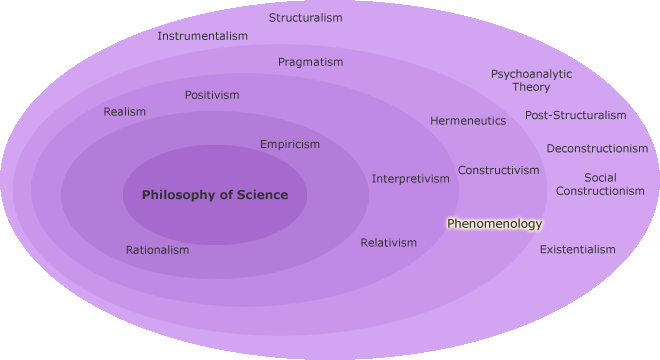Phenomenology
tekijä: Tanja Tuulikki Välisalo
—
Viimeisin muutos
tiistai 09. maaliskuuta 2010, 13.58

Phenomenology stresses the formation of knowledge based on human perception and experiences.
- Subjectivity and discussion of personal sensations, feelings and experiences are seen as meaningful
- Personal individual experiences and perceptions of the world are the only source of knowledge.
- Several variations exist, all emphasising the physical and bodily experiences of the world in formation of the knowledge.
- You need to be ready and willing to accept and understand new ideas, situations and events.
- You must approach the research topic without any previous presuppositions or predefined ideas and be willing to do the research in a flexible theoretical framework.
Phenomenology is a contrast orientation to positivism.
Links to more information:
Phenomenology (science). Wikipedia, The Free Encyclopedia.
Embree, Lester, 1997. What is Phenomenology? Center for Advanced Research in Phenomenology.
Phenomenology. New World Encyclopedia.
Read what is written in Strategies on phenomenological research.
Read what is written in Data Analysis on phenomenological analysis.
